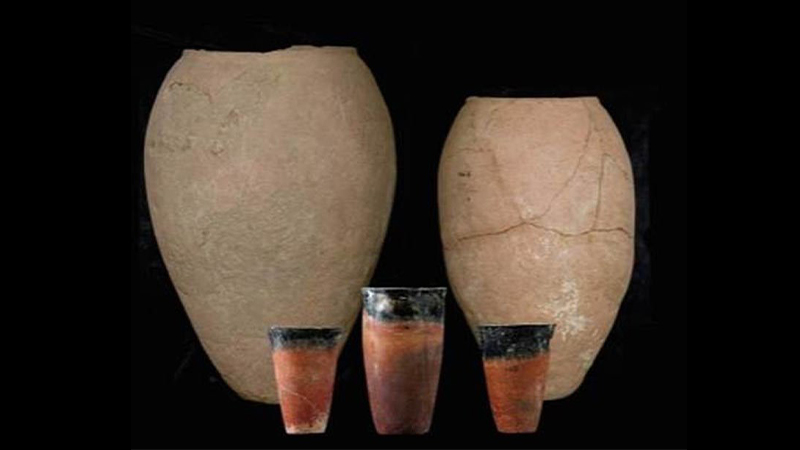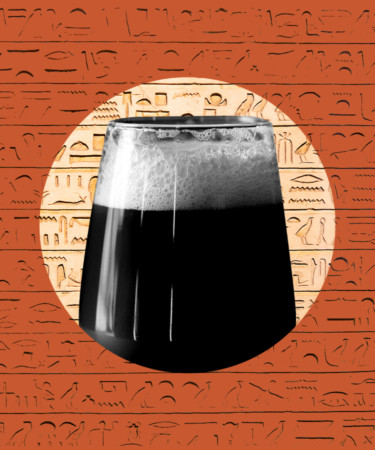In the words of The Bangles: Drink like an Egyptian.
According to new archeological research, beer was widely consumed and produced in Ancient Egypt, as far back as 5,800 years ago. The study was published in the December issue of the Journal of Anthropological Archeology, and headed by Professor Jiajing Wang from Dartmouth University. The work of Wang and colleagues determined that beer was not only a commodity in pre-unified Egypt, but used for ritual purposes.
Wang’s team studied fragments of pottery found at the Hierakonpolis dig site in southern Egypt, one of the largest urban centers along the Nile before the unification of an Egyptian state. Hierakonpolis is also the same dig site where the Narmer Palette was discovered, one of the world’s oldest political texts.
The fragments from the studies were dated between 3800 and 3600 BC, 600 years before the rule of Pharaoh Narmer, who historians considered to be the founder of the First Dynasty and the first pharaoh of Egypt. The research states that the beer produced at one of the Hierakonpolis sites was used for rituals at a closeby elite cemetery, proving that beer was not just a part of everyday life but symbolic of status and authority.

Microfossil residue analysis, conducted on 33 ceramic vessel fragments, found traces of yeast cells, starch granules, and “beer stones.” Upon further diagnosis, the analysis suggests the ancient beer was thick and cloudy, almost like a porridge, and would have been lower in alcohol content.
“The beer was probably like a thick porridge, very different from the IPAs we drink today,” Wang told the Daily Mail. “Beer was likely a staple food consumed by everyone and, at the same time, it was also ritually consumed on special occasions.”
In data and evidence collected from previous excavations, brewing and the consumption of beers is suggested to have been a highly organized and specialized industry in Ancient Egypt. Recently conducted excavations have found more than a dozen breweries, with some archeologists suggesting that beer was crucial in the development of Egypt as a civilization, especially in its implications of power.
